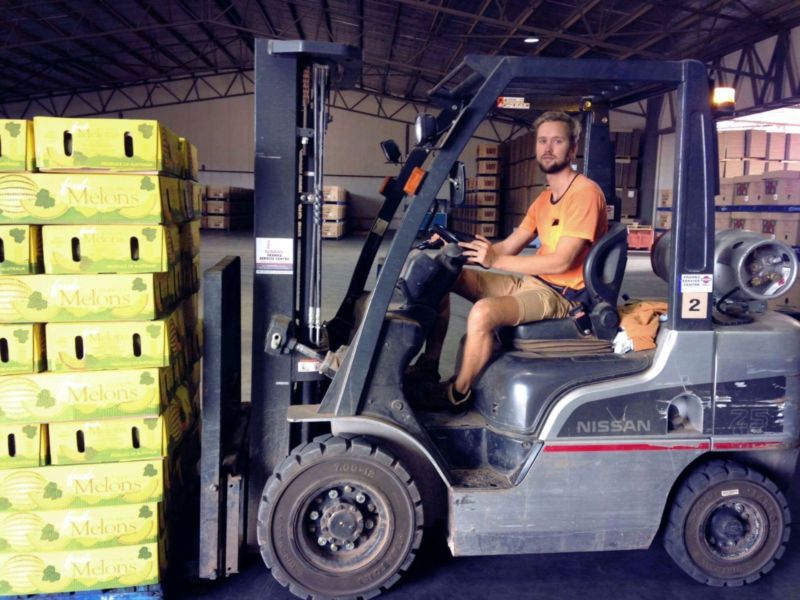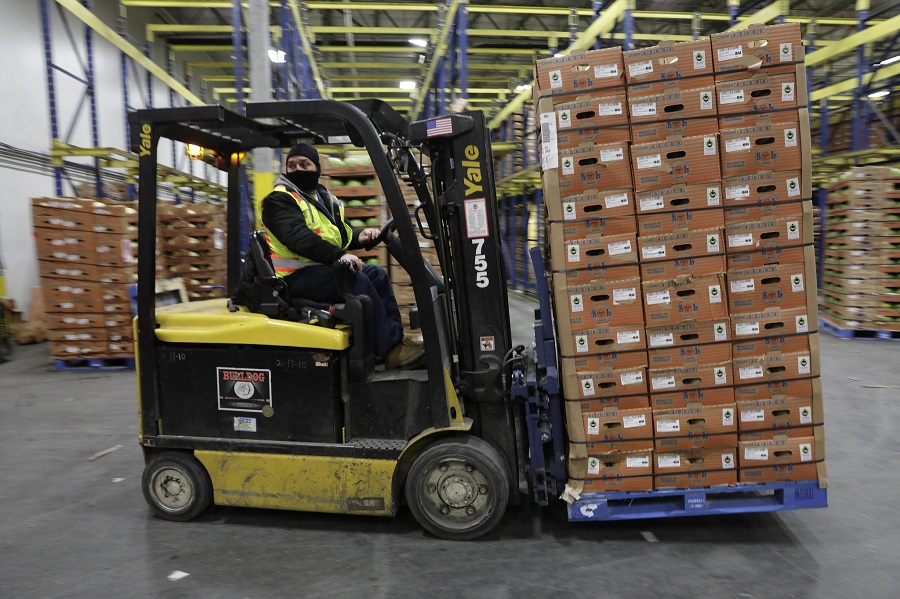Forklift Operator Job - Are you considering a career as a forklift operator? This job can be challenging, but it's also incredibly rewarding. You'll work with heavy machinery, learn new skills, and contribute to the logistics of a business. Here are some tips and ideas to help you become a successful forklift operator.
Job Description
Responsibilities
As a forklift operator, your primary responsibility is to move materials around a warehouse or worksite. You will be responsible for loading and unloading trucks, stacking pallets, and ensuring that inventory is stored safely and efficiently. You may also be responsible for performing routine maintenance on your forklift, such as changing oil, checking fluid levels, and replacing worn parts.
Requirements
To become a forklift operator, you must be at least 18 years old and have a high school diploma or GED. You will also need a valid driver's license and be able to pass a background check. In some cases, you may be required to complete a forklift certification course, which will cover topics such as safety regulations, proper operating techniques, and maintenance procedures.
Benefits
Job Stability
Forklift operators are a vital part of the logistics industry, and their skills are always in demand. Whether you work for a large corporation or a small business, there will always be a need for someone to move materials from point A to point B. This means that as a forklift operator, you can enjoy excellent job stability and security.
Competitive Pay
According to the Bureau of Labor Statistics, the median hourly wage for forklift operators is $17.28. This can vary depending on your location, level of experience, and the industry you work in. However, in most cases, forklift operators receive competitive pay and benefits.
Opportunities for Advancement
As you gain experience as a forklift operator, you may have the opportunity to take on additional responsibilities and advance in your career. For example, you may be promoted to a supervisory or management position, or you may choose to specialize in a particular type of machinery or industry.
How to Become a Forklift Operator
Step 1: Get the Right Education
If you don't have a high school diploma or GED, you'll need to obtain one before you can become a forklift operator. You may also want to consider taking classes in inventory management, logistics, or supply chain management, which can help you understand the industry and provide you with additional skills.
Step 2: Obtain Your Certification
If your employer requires you to be certified, you'll need to complete a forklift operator training course. These courses can be found at community colleges, vocational schools, or through online programs. Your training will cover safety regulations, proper operating techniques, and maintenance procedures.
Step 3: Gain Experience
You'll need to gain hands-on experience operating a forklift before you can become a successful forklift operator. This experience can be gained through an apprenticeship, on-the-job training, or by working as an assistant to a more experienced forklift operator.
Step 4: Build Your Network
Networking is an essential component of any career, and forklift operation is no exception. Attend industry events, join forklift operator groups on social media, and connect with other operators in your field. You never know where your next opportunity may come from.
Tips for Success
1. Always Be Aware of Your Surroundings
As a forklift operator, you will be working in a fast-paced environment. It's vital to be aware of your surroundings at all times to avoid accidents or injuries. Stay focused on the job at hand and be mindful of other people and equipment around you.
2. Follow Safety Procedures
One of the most crucial aspects of operating a forklift is following safety procedures. Always wear your seatbelt, use caution when driving on ramps or inclines, and be sure to follow all posted signs and warnings. Remember, safety is everyone's responsibility.
3. Keep Your Equipment Maintained
To ensure that your forklift operates correctly, it's vital to keep it maintained. Perform routine inspections, change oil, and check fluid levels regularly. Replace worn parts promptly, and report any issues to your supervisor right away.
If you're interested in a career as a forklift operator, there's no better time to get started. With the right education, certification, and experience, you can become a valuable asset to any logistics team. By following these tips and ideas, you'll be on your way to success in no time.




Read more articles about Forklift Operator Job